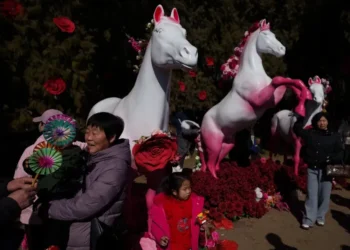Mexican Contestant Wins Miss Universe 2025 Amid Pageant Controversy
Fátima Bosch Fernández of Mexico captured the Miss Universe 2025 crown on Friday, marking a dramatic turn in a pageant overshadowed by public criticism and controversy. Bosch, 25, faced bullying from a host days before the final, sparking solidarity from fellow contestants and national leaders.
Pageant Drama Unfolds in Bangkok
The 74th Miss Universe pageant in Bangkok, Thailand, became the center of intense public attention weeks before the finale due to tensions between contestants and organizers. Bosch, representing Mexico, was publicly reprimanded by Thai national director Nawat Itsaragrisil during the November 4 sashing ceremony for allegedly failing to follow local promotional guidelines.
When Bosch defended herself, security was reportedly called, prompting her to walk out of the room. Several contestants joined her in solidarity, including Miss Universe 2024, Victoria Kjær Theilvig of Denmark.
Bosch told Thai reporters, “What your director did is not respectful: He called me dumb. If it takes away your dignity, you need to go.” Nawat denied making the remark but later issued a public apology in front of the contestants, expressing regret for any discomfort caused.
Triumphant Victory
Despite the controversy, Bosch achieved a historic victory on Friday. As her name was announced as Miss Universe 2025, the crowd erupted in cheers, waving Mexican flags in celebration. Speaking to the media, Bosch said she hoped to be remembered as “a person that changed a little bit the prototype of what is a Miss Universe and a real person that gives the heart.”
She emphasized the pageant’s role as a platform for women’s voices: “It is strong because it provides the space that women are searching to have a voice.”
The first runner-up was Praveenar Singh of Thailand, 29, followed by Stephany Adriana Abasali Nasser of Venezuela, 25. Ahtisa Manalo, 28, of the Philippines, and Olivia Yacé, 27, of Ivory Coast, completed the top five finishers.
International and Social Reactions
Bosch’s stand against perceived bullying drew international attention. Raúl Rocha Cantú, president of the Miss Universe Organization, condemned the host’s conduct, labeling it “public aggression” and “serious abuse.”
Mexico’s first female president, Claudia Sheinbaum, publicly praised Bosch for responding “in a dignified way” and highlighted the importance of women raising their voices. Sheinbaum noted, “We women look more beautiful when we raise our voice and participate, because that has to do with the recognition of our rights.”
Nawat Itsaragrisil later apologized, stating, “If anyone was affected or not comfortable, it happened. I am so sorry,” though he also appeared visibly defiant in front of the contestants.
Bosch’s Background and Advocacy
Bosch has a strong foundation in fashion, having studied in Mexico and Italy. Her work emphasizes sustainability, including designing with recycled materials. In addition to her professional pursuits, Bosch has been active in volunteer efforts, working with sick children, promoting environmental awareness, and supporting migrants and mental health initiatives.
Her victory has been interpreted not only as a personal achievement but also as recognition of social advocacy, empowerment, and resilience.
Pageant Controversies and Historical Context
The 2025 competition was marked by additional turbulence. Reports indicated that two judges had resigned, one citing possible bias or rigging, though these claims were denied. Thai authorities investigated alleged illegal promotion of online casinos connected to the event’s publicity.
Pageant mishaps are not uncommon. In 2021, the event faced criticism for being held in Israel, prompting backlash from Palestinian supporters. During the 2025 event, Miss Universe Jamaica, Gabrielle Henry, briefly fell off the stage during the evening gown segment, though she was not injured.
Bold Cultural Significance and Broader Implications
Bosch’s victory highlights evolving expectations for beauty pageants in the 21st century, where public poise, advocacy, and social engagement increasingly weigh alongside traditional measures of appearance. Her response to public bullying and subsequent triumph reflects wider discussions about women’s rights, dignity, and empowerment on global platforms.
By asserting her voice in the face of criticism, Bosch has become emblematic of a cultural shift in how contestants engage with authority and the media, inspiring discourse about respect, resilience, and the responsibilities of pageant organizers toward participants.
Conclusion
Fátima Bosch Fernández’s win at Miss Universe 2025 demonstrates the interplay of talent, advocacy, and courage in contemporary global pageantry. Beyond a crown, her journey underscores the social impact of standing against injustice, offering a modern model of empowerment for women worldwide.
This article was rewritten by JournosNews.com based on verified reporting from trusted sources. The content has been independently reviewed, fact-checked, and edited for accuracy, neutrality, tone, and global readability in accordance with Google News and AdSense standards.
All opinions, quotes, or statements from contributors, experts, or sourced organizations do not necessarily reflect the views of JournosNews.com. JournosNews.com maintains full editorial independence from any external funders, sponsors, or organizations.
Stay informed with JournosNews.com — your trusted source for verified global reporting and in-depth analysis. Follow us on Google News, BlueSky, and X for real-time updates.














